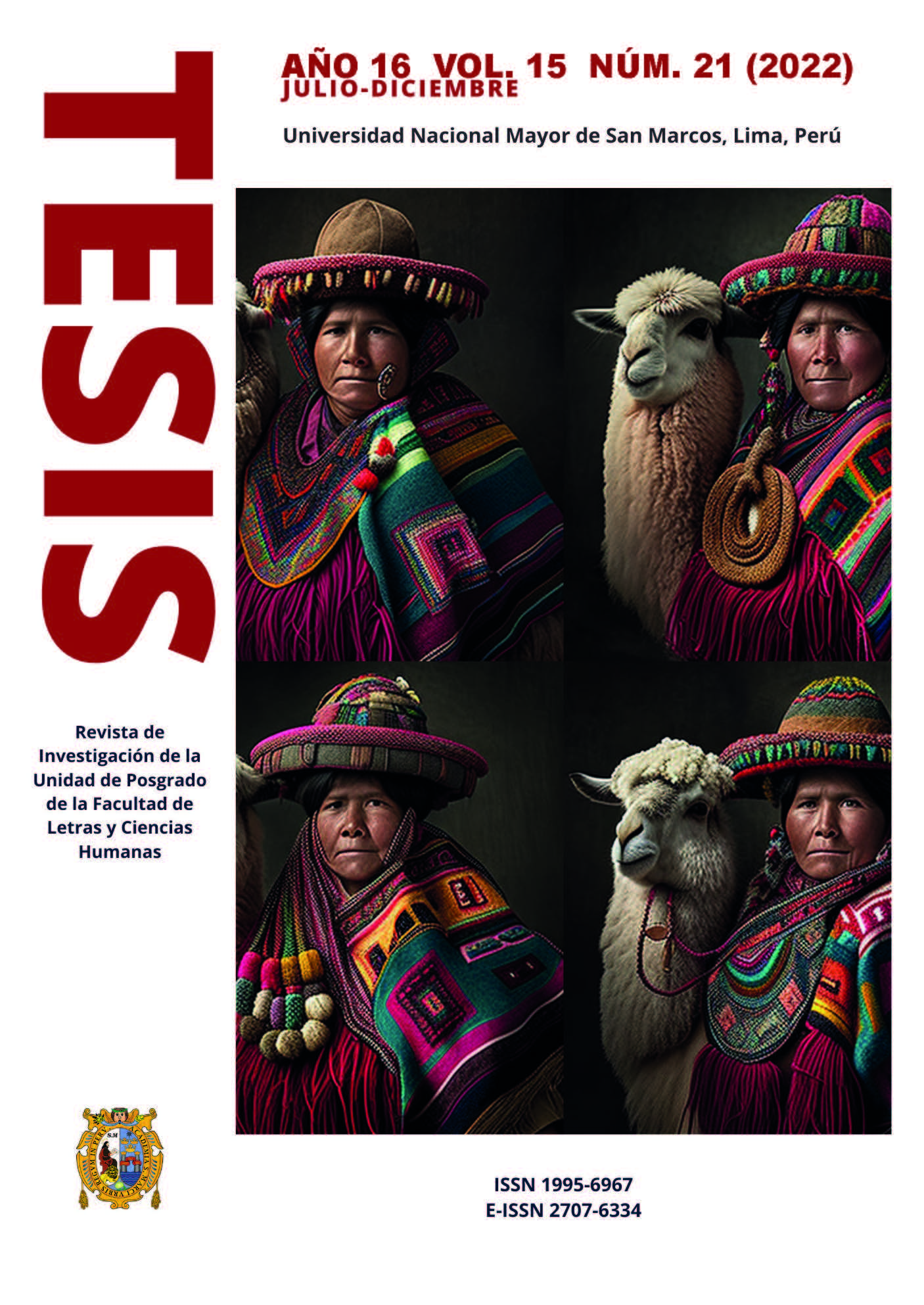A melancholic theatre: A study of two works by César De María
DOI:
https://doi.org/10.15381/tesis.v15i21.25222Keywords:
metaphor, allegory, disease, dramaturgy, theaterAbstract
In this work, we try to study the metaphor and allegory of the disease proposed by the Peruvian playwright César De María. These tropes show the characters confronting each other in an unequal society from the body. In this way, De María’s proposal configures the corporeal from a marginal space, where the hegemonic logic can be decentered. Therefore, we formulate that theatrical works: ¡A ver, un aplauso! and Morir cantando trace a series of resistances: the disease and the pandemic. Following the approaches of Stefano Arduini on the figurative field of metaphor and Walter Benjamin on allegory, we will observe how these works, the first written and exhibited before the pandemic, already proposed the topic of illness to question a reality, that of others bodies, and the second staging in the midst of a pandemic, makes use of new technologies, and puts the topic of death on the table. In this way, the metaphor and the allegory acquire another vision of the world and feed the formation of another representation.
References
Arduini, S. (2000). Prolegómenos a una teoría general de las figuras. Universidad de Murcia, Servicio de Publicaciones.
Benjamin, W. (2007). El origen del trauerspiel alemán. En R. Tiedemann y H. Schweppenhäuser (eds.), Obras. Libro I / vol. 1 (pp. 217-459). Abada Editores.
De María, C. (2019). Contra el tiempo. Doce obras de teatro de César De María. Escuela Nacional Superior de Arte Dramático.
Downloads
Published
Issue
Section
License
Copyright (c) 2023 Judith Mavila Paredes Morales

This work is licensed under a Creative Commons Attribution 4.0 International License.
THE AUTHORS RETAIN THEIR RIGHTS:
(a) The authors retain their trademark and patent rights, and also on any process or procedure described in the article.
(b) The authors retain the right to share, copy, distribute, execute and publicly communicate the article published in Tesis (Lima) (in example, depositing the article in an institutional repository or publish it in a book), with recognition of its initial publication in the Tesis (Lima).
(c) The authors retain the right to make a later publication of their work, to use the article or any part of it (for example: a compilation of their works, notes for conferences, thesis, or for a book), provided that they indicate the source of publication (authors of the work, magazine, volume, number and date).














